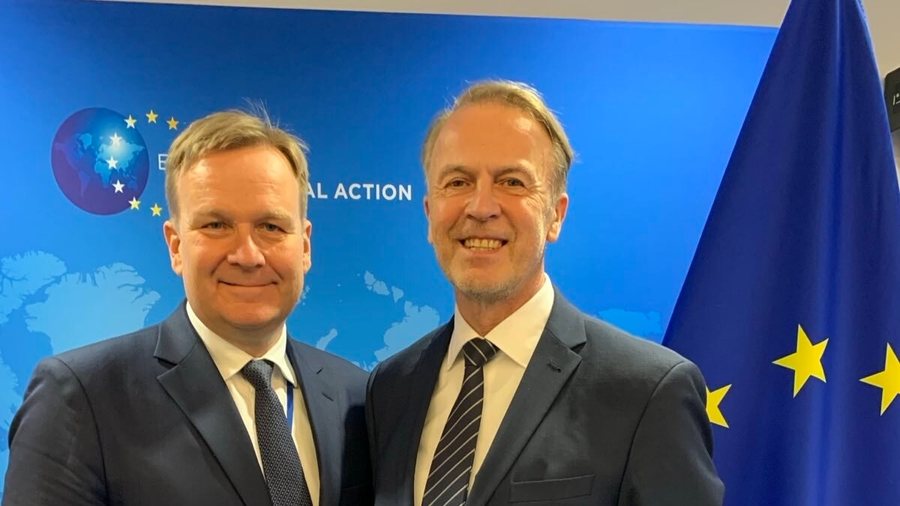
The European Union Ambassador to Kosovo, Aivo Orav, said on Saturday that he had a very good meeting with Peter Sorensen, the new European Union envoy for the dialogue between Kosovo and Serbia.
Unlike his predecessor, Miroslav Lajcak, Sorensen will deal only with dialogue and not with other Balkan issues.
He officially began his term on February 1.
Orav said in a post on the social network X – formerly Twitter – that he believes Sorensen's diplomatic experience will help advance the normalization of relations between Kosovo and Serbia.
"My team and I fully support him!" said Orav.
Since Sorensen's name began to be mentioned in the media weeks ago, the atmosphere for him has been positive.
One of the most frequent arguments has been that the 57-year-old knows the region.
And, indeed, that is the case. A diplomat for many years, he was engaged in Kosovo, within the framework of the United Nations Mission (UNMIK), as well as in other roles, in Serbia, North Macedonia and Bosnia and Herzegovina.
As political experts say, he does not need to be informed in advance about the people or historical facts of the region, because he has already had the opportunity to create a close overview.
Another argument that has been mentioned as positive by officials in Pristina is that he is from Denmark, a country that recognizes Kosovo's statehood, and that he will have equal access to the dialogue.
The background of a mediator has become a very important element, since Lajcak took that position, while that of the EU's chief diplomat has been held by Josep Borrell.
Being from Slovakia, the other from Spain, both countries that do not recognize Kosovo's statehood, they have been constantly followed by a dark shadow. From ordinary Kosovo citizens to the country's president, Vjosa Osmani, the pair have been accused of bias and, on occasion, of siding with Serbia.
Both have repeatedly denied the accusations.
However, political experts do not expect miracles in the dialogue process, as they believe that success in the dialogue depends on the energy that the main EU countries spend on this process, especially Germany and France.
But they are now facing internal political crises and, consequently, Sorensen will not have the political power behind him that he would perhaps like.
The focus of the dialogue is expected to be on the implementation of the agreement on the normalization of relations, reached between the two sides in February 2023.
The parties have been negotiating since 2011 and have reached a number of agreements, but not all of them have been implemented.
The EU frequently reminds both parties that progress in the dialogue process is linked to their path towards Euro-Atlantic integration./REL (A2 Televizion)











